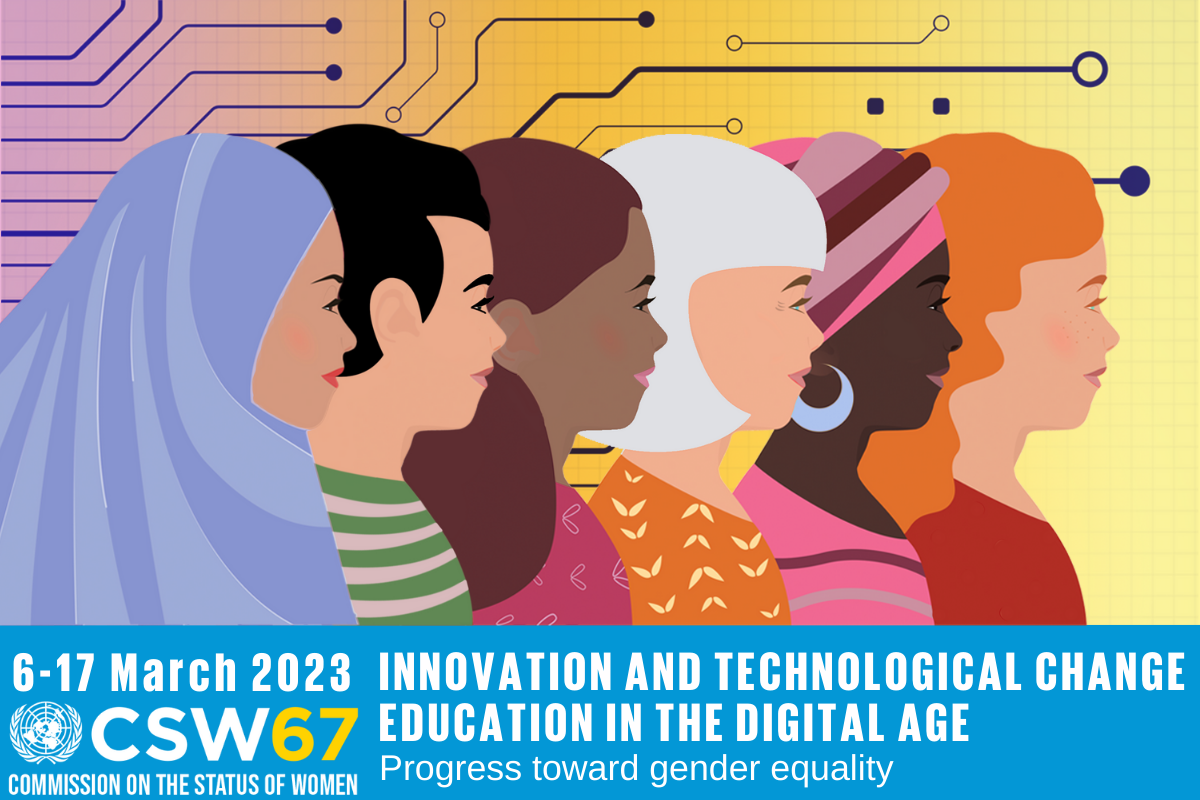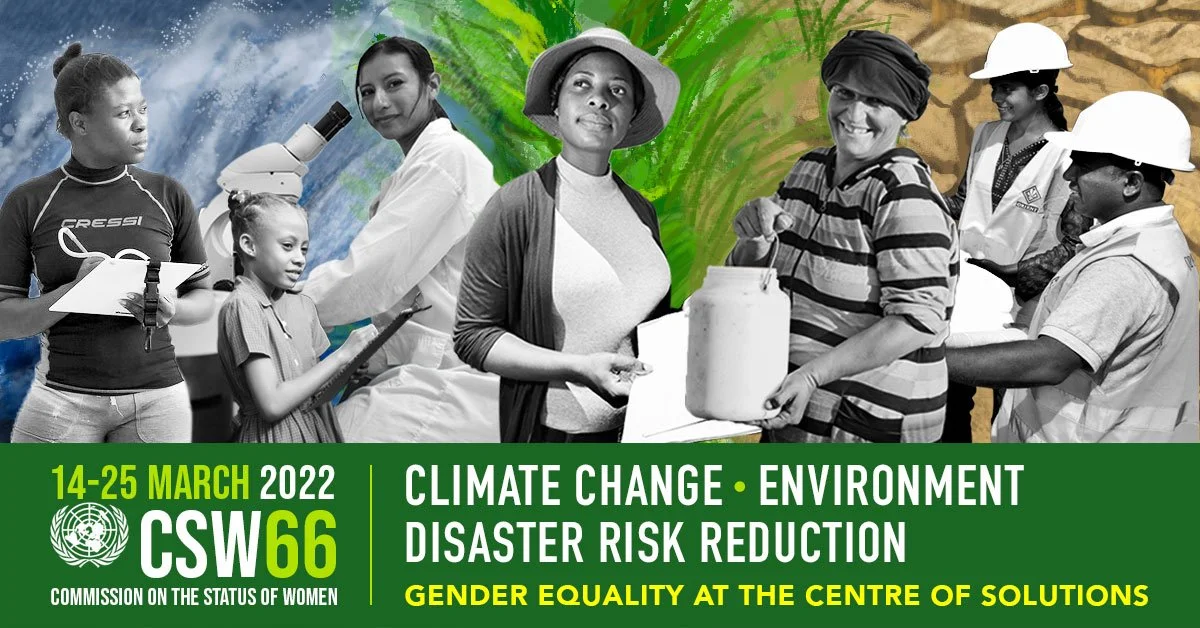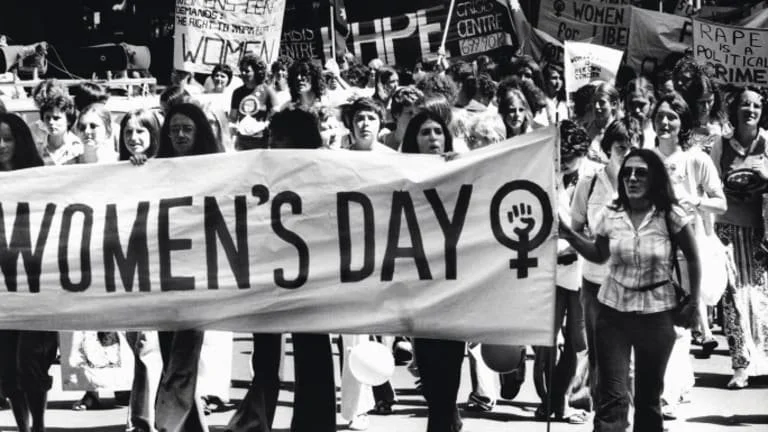It's that time of the year: CSW67 and International Women’s Day
Photo credit: UN Women
By Carmen Taboada
The 67th Session of the Commission on the Status of Women (CSW) has started this week (March 6) and will go on until the 17th of this month. As a crucial conference for global gender policy, EmpoderaClima is highlighting the Commission’s important work and relevance, specifically to gender and climate justice.
The Commission on the Status of Women (CSW) was established on June 21st of 1946, within the Economic and Social Council (ECOSOC) of the United Nations (UN). It is the main global intergovernmental body that works only to promote gender equality and the empowerment of women. The Commission shapes global standards and politics on gender equality by collecting data from the reality of women’s lives throughout the world.
Since 1996, ECOSOC has expanded CSW's mandate and, thus, the Commission has taken the lead in monitoring the implementation of the Beijing Declaration and Platform for Action, which is a fundamental global policy on gender equality. The CSW also mainstreams a gender perspective in general UN activities.
How the CSW works
The Commission gathers annually in the month of March at the UN Headquarters in New York for a two-week long session, hosting representatives of UN Member States, civil society organizations and other UN entities.
The Commission also has a Bureau, which is composed of five members - each representing a region of the world - and they serve for a period of two years. They have a key role in facilitating the preparation for, and ensuring the successful conclusion of the conference.
The CSW has a multi-year work programme, which was first adopted in 1987, for a focused and thematic approach. It assesses progress and makes negotiated and agreed recommendations to further the implementation of the Platform for Action. The Commission also reviews the 2030 Agenda for Sustainable Development, focusing on the goals of gender equality and the empowerment of women. Normally, each session has a theme to be discussed and a review theme that evaluates progress in implementing agreed conclusions from previous sessions. In 2020, ECOSOC resolution 2020/15 established a new multi-year programme of work for the years 2021-2024.
Last year, in 2022, the theme was actually about gender and climate justice, which was very exciting for EmpoderaClima! The CSW66 priority theme was: Achieving gender equality and the empowerment of all women and girls in the context of climate change, environmental and disaster risk reduction policies and programmes. We analyzed the expectations and results of last year's conference on our Instagram, in Portuguese - take a look here and here.
This year’s 67th session priority theme is “Innovation and technological change, and education in the digital age for achieving gender equality and the empowerment of all women and girls” and the review theme is “Challenges and opportunities in achieving gender equality and the empowerment of rural women and girls” (agreed conclusions of the 62nd session).
The CSW67's priority theme is important because gender gaps exist in digital and technological spaces: girls are often disadvantaged when it comes to digital adoption and access, and they do not benefit from it as boys do. Bringing women and other marginalized groups into technology leads to more creative solutions and has greater potential for innovation to promote gender equality.
For the sessions to happen, there are a lot of preparations to be done and side events to organize. The Commission has internal preparatory meetings, pre-CSW events, such as the Virtual Youth Forum, and also meets with an expert group about the subject of the session.
Besides that, for this year's CSW, there was a virtual African consultation meeting on the priority theme. In the consultation, experts and ministers reviewed and adopted the Common Africa Position for CSW67, and made recommendations. This consultation was led by the African Union Commission, UN Women, the Economic Commission for Africa, the International Telecommunication Union, and the United Nations Development Programme.
Considering that the Global South is the most affected region when it comes to unequal access to digital and technological tools, having a specialized group on the matter to consult for the policy recommendations that will be made in CSW67 is extremely necessary. And not only that, recognizing and listening to African women and girls' struggles due to gender inequality in technological spaces is the way to make productive dialogue towards decreasing the existing gap.
Why do CSW and so many other women’s events happen in March?
International Women's Day (IWD) has been celebrated in March since 1911, yet the United Nations only officially recognized it in 1977.
IWD is a traditional date for women's causes in many countries, such as Brazil, China, the United States, Russia, Italy and others. Its origins come from New York, in the year 1908, when 15,000 women marched demanding a reduction in working hours, better wages and the right to vote. Despite the importance of this event, it can not be considered the only influence on the creation of IWD, since the tradition was established by a variety of circumstances in many countries at that time - is all connected to the increase of the industrial sector and the need for better working and living conditions for all, especially women.
In 1910, the International Conference of Socialist Women in Copenhagen adopted International Women's Day and, in the next year, it was celebrated on 19 March in some European countries. After some years of international campaigns for women’s rights, in 1917, Russian women protested about the consequences of the First World War and, four days later, the Czar had to abdicate and it was approved women’s suffrage. The date the women's strike began was Sunday, February 23 on the Julian calendar, which corresponds to March 8 on the Gregorian calendar - used in most countries nowadays. Meanwhile, in the United States, in 1987, the American Congress declared the first official Women’s History Month, which is also observed in the United Kingdom and Australia - and in October in Canada.
International Women's Day is also a great opportunity to bring light to the existing problems that women face around the world and to the gender gap maintained by the patriarchal structures of our society.
According to the 2022 Global Gender Gap Index, the gender gap worldwide has been closed by 68.1%, which means that there is still 31.9% to be bridged for reaching full gender parity. It is estimated that gender parity will only be achieved in 132 years. IWD is a call for action, a moment to develop solutions and intersectional policies capable of accelerating gender parity.
Experiences related to the climate crisis are also challenges faced by the movement since they deepen the already existing gender gap.
Despite women being more affected by the climate crisis and still being underrepresented in decision-making spaces, there are some key wins for IWD.
At CSW66 in 2022, global leaders recognized the disproportionate impacts of climate change on women and youth across the world. Not only that, but the Commission also approved "the first‑ever set of agreed conclusions focused on empowering women and girls in the context of climate action", a milestone for the movement.
However, there is still work to be done and IWD can help achieve it. This includes:
Promoting the equal participation and leadership of women and youth in managing climate issues;
Expanding gender-sensitive investments for climate action and, especially, the ones being coordinated by women;
Developing climate education for youth and ensuring that it is accessible for women and girls; and
Enhancing research on data and statistics about the nexus of gender and the climate crisis.
Happy International Women's Day, from EmpoderaClima to you.



